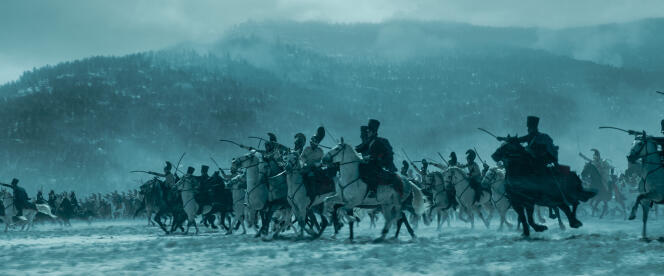Author of numerous works studying the relationships between history and national memory, Yann Potin notably participated in the coordination of the work World History of France (Seuil, 2017), directed by Patrick Boucheron, was deputy curator of the major exhibition “Napoleon and Europe. The dream and the wound” at the Army Museum in Paris, and organized the conference “Annexing memory, centralizing knowledge in Napoleonic Europe” (National Archives, 2014). We find this cinema buff at his office at the National Archives, a few days after his discovery of the Napoleon by Ridley Scott.
What were your expectations for this film?
As a spectator who was able to admire the way in which Gladiator [2000] by Ridley Scott transfigured the peplum genre, I expected something similar from this film. But my expectation was disappointed, because the Napoleon by Scott falls, like most of the works that have been devoted to this figure, into the category of what I would call film-tableaux, in the material and symbolic sense of the term. We pretend to take the story as a screenplay, but it is far too vast to fit into the film. As a result, there is no drama and all the viewer has to do is wait for a change of scenery. It’s a vast diorama. Which does not prevent certain battle scenes, like that of Austerlitz, from being truly exceptional. But I was hoping the film would exceed that ceiling.
How do you understand this decision to alternate from start to finish the battle scenes and the eventful relationship with the Empress Joséphine de Beauharnais?
This is the side If Versailles was told to me… [1954] of the film, which deduces the upheaval of the world from the issues of the boudoir, and which obviously stems from reflexive reductionism. At this level of ineptitude, Alain Decaux would pass for Fernand Braudel. At least, in the absence of focus, he chose the red thread technique. This is not the stupidest choice, because the relationship between the two is well documented, notably through the exceptional preservation of Napoleon’s letters to Joséphine, whom the film shows had stored in her bedroom, a detail which delights the archivist that I am, because it proves in a sense that she loved him.
Despite some erotic scenes, the film, undoubtedly a little puritanical in this respect, waters down the quotes from this source, where we find in particular this, which dates from 1796: “You know, the little black forest. I give it a thousand kisses and I look forward to the moment of being there. » Furthermore, on the political level this time, it is a shame that the role of Joséphine in the rise of Bonaparte, she who was in fact at the heart of all the Directory networks, is not explained by the film. Ridley Scott, who boasts of the opposite, is more elitist than popularizer.
You have 55% of this article left to read. The rest is reserved for subscribers.
